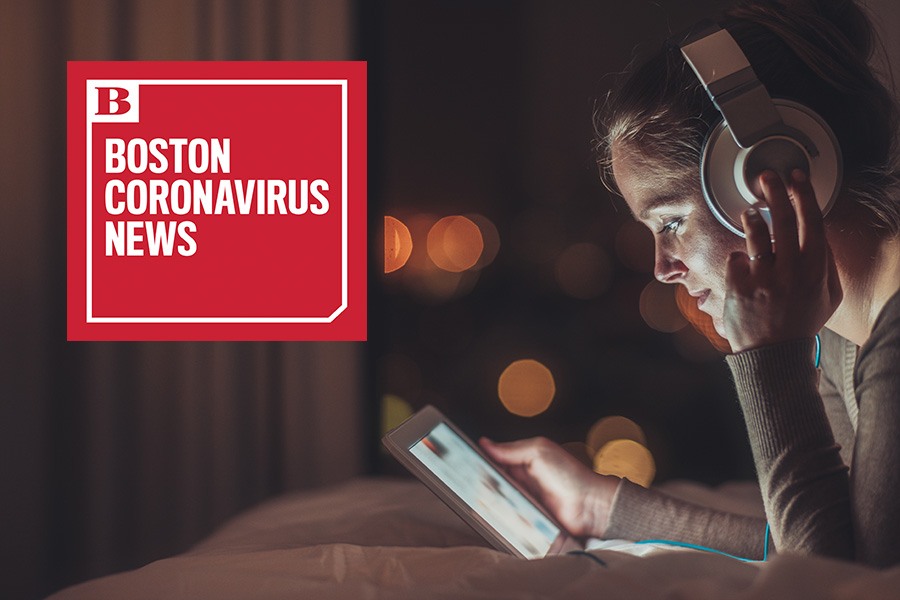Stuck at Home? Here’s How to Spend Less Time Wallowing in Existential Dread
Just a few ways to manage your anxiety amidst the coronavirus pandemic.

Photo via Getty Images
Working from home? I can deal with that. Shortage of toilet paper? That’s why there are paper towels. No access to museums or theaters? I can find something else to do on my Saturdays. Gyms closing and fitness studios not offering classes? Now I’ve got a problem.
Like most of you, exercise is how I decompress from the world. Connecting over the barbell with people in my community is how I stay sane. This bit of news was rattling, and I fear that the gyms that are still operating might not be for much longer. Which leaves me, and I’m sure many of us out there, wondering: What the heck are we to do with all this free time and isolation?
Whereas some may see this as the tip of an unnerving spiral into anxiety, it actually might be a good thing. Aaron Gilbert, licensed clinical social worker and founder of Boston Evening Therapy, tells me the time is a great opportunity to get to know yourself better. “We’re not very good at the idea of being alone,” he says. “It makes people nervous.”
He says to view this time as an opportunity to rely on your own strength and the fact that we don’t always need to be entertained or externally validated.
That’s easier said than done, though, and he’s quick to point out that those who are already predisposed to anxiety and depression may find those symptoms exacerbated during this time. But even if you don’t normally suffer bouts of either, collectively, it’s safe to say the city’s nerves are on overdrive.
Gilbert and his colleague Karen Schwartz Clover offer tips to taking care of your mental health amidst the coronavirus crisis:
- Limit exposure to the news, social media, and unnecessary chatter. Gilbert says once you have the facts to stay safe, log off and stop talking about it. Continuing down the rabbit hole of information can be detrimental to your mental state and doesn’t serve any purpose other than to cause more worry.
- Get out into nature to find peace and solidarity. Head to a park, go for a hike, or grab a fishing pole. Gilbert says nature can be a very grounding and calming experience.
- Take care of your body through working out and eating healthy food. The best thing you can do for your mental health is take care of your physical health and to be conscious of all the things you are consuming, Schwartz Clover says.
- Spend time consuming positive books, movies, and news to keep your mind busy.
- Use this time to work on something creative. Schwartz Clover says this is a great time to do something creative—paint, study, write, or figure out your next step in life. We often don’t have this kind of time to do quiet introspection, so take advantage of it.
You can also direct your anxiety towards taking action, as Boston reported on earlier this week, by donating to the Greater Boston Food Bank in order to provide meals to underprivileged families and children.
And at the end of the day, realize that this too shall pass. Maybe this is the universe telling us all to slow down and pay attention to our fellow human beings, maybe it’s just ill fate. Whatever you believe, believe in compassion for your fellow Bostonians and believe that together we will pull through.

